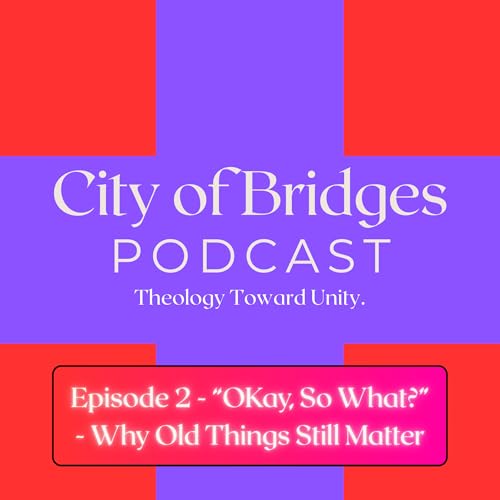This year marks the 1700th anniversary of the Nicene Creed — a confession of faith that has survived despite the many ruptures and divisions Christians have experienced since its inception. Born out of the early Church’s struggle to articulate the mystery of Christ and the unity of God in the face of heresy, the Creed was first shaped at the Council of Nicaea in 325 and deepened at Constantinople in 381. It became a shared anchor for Orthodox, Catholic, and many Protestant traditions — even as its interpretation and use have reflected the fractures and hopes of Christian history.
In this conversation, I sit down with Bishop Jakob Palm to explore not just the theological contours of the Creed, but its personal resonance: how it shapes his life as a bishop, a husband, a father, and a friend. We’ll reflect on the Creed’s role in church unity, its enduring beauty, and the tensions it still holds — and ask what it means to confess faith in one God, one Lord, one Church, in a world that desperately longs for healing.
-----
The Nicene Creed
I believe in one God, Father Almighty, Creator of heaven and earth, and of all things visible and invisible.
And in one Lord Jesus Christ, the only-begotten Son of God, begotten of the Father before all ages; Light of Light, true God of true God, begotten, not created, of one essence with the Father through Whom all things were made. Who for us men and for our salvation came down from heaven and was incarnate of the Holy Spirit and the Virgin Mary and became man. He was crucified for us under Pontius Pilate, and suffered and was buried; And He rose on the third day, according to the Scriptures. He ascended into heaven and is seated at the right hand of the Father; And He will come again with glory to judge the living and dead. His kingdom shall have no end.
And in the Holy Spirit, the Lord, the Creator of life, Who proceeds from the Father, Who together with the Father and the Son is worshipped and glorified, Who spoke through the prophets.
In one, holy, catholic, and apostolic Church.
I confess one baptism for the forgiveness of sins.
I look for the resurrection of the dead, and the life of the age to come.
Amen.
----
Nicene-Constantinopolitan Creed - OrthodoxWiki
----
The Orthodox Faith - Volume I - Doctrine and Scripture - The Symbol of Faith - Nicene Creed - Orthodox Church in America
----
Visit our website to learn more about Holy Covenant Evangelical Orthodox Church in Saskatoon, Saskatchewan: https://www.holycovenantchurch.net/
----
October 24 to 28, 2025 The World Council of Churches truth and order conference The Sixth World Conference on Faith and Order of the World Council of Churches (WCC) will take place from October 24 to 28, 2025, in Wadi El Natrun, Egypt. The conference will focus on the theme "Where now for visible unity?" and will be held at the Logos Papal Center of the Coptic Orthodox Church. This event marks the 1700th anniversary of the First Council of Nicaea, a significant moment in the history of the Christian church. The conference aims to bring together church leaders and theologians from various traditions to engage in theological dialogue and promote visible unity among the churches. Resources published for the Sixth World Conference on Faith and Order | World Council of Churches
 1 時間 18 分
1 時間 18 分 2025/10/2433 分
2025/10/2433 分 1 時間 9 分
1 時間 9 分 56 分
56 分 2025/09/121 時間 24 分
2025/09/121 時間 24 分 1 時間 3 分
1 時間 3 分 51 分
51 分 29 分
29 分
